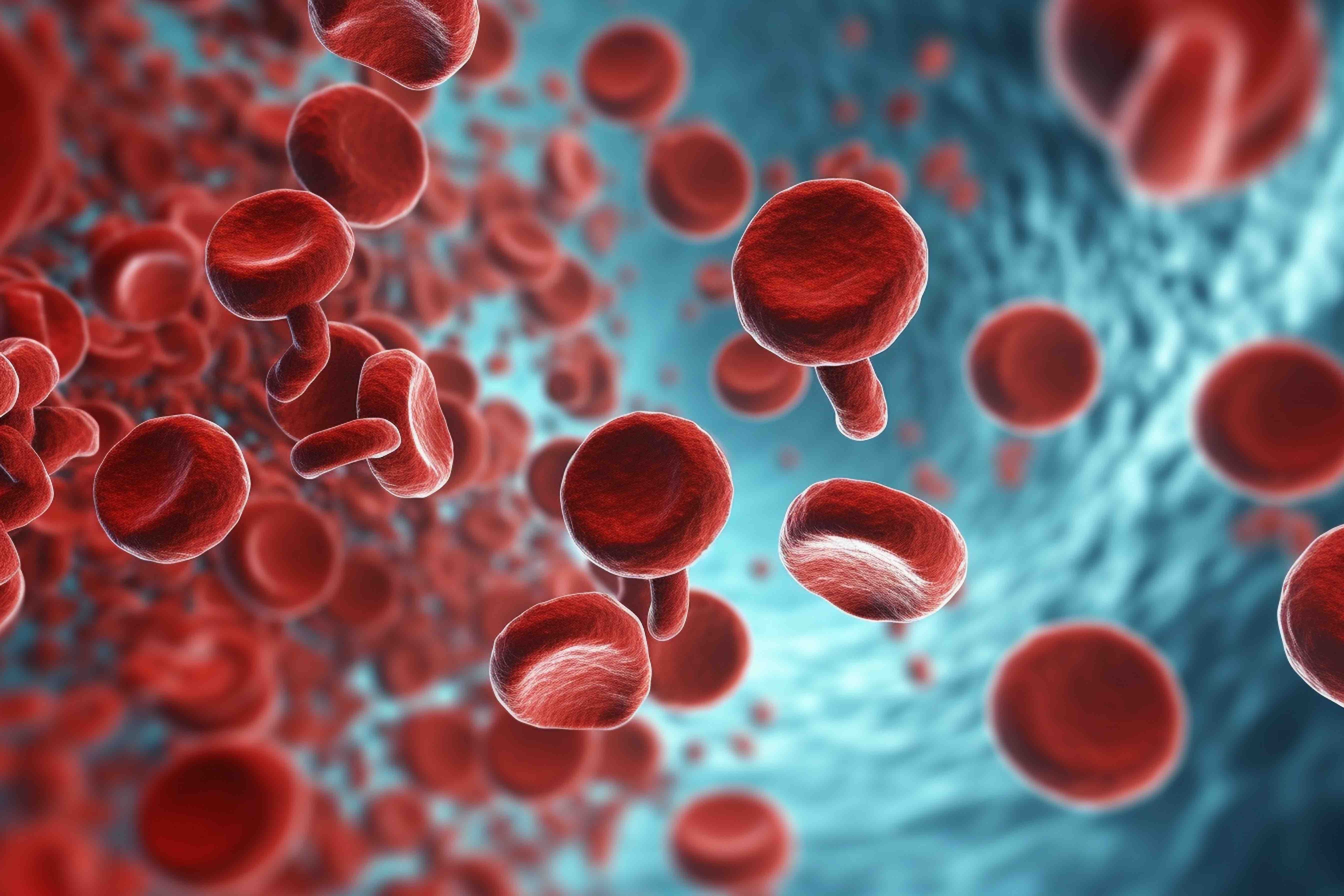- Center on Health Equity & Access
- Clinical
- Health Care Cost
- Health Care Delivery
- Insurance
- Policy
- Technology
- Value-Based Care
Novel Antibody-Drug Conjugate HDP-101 Shows Promise in Relapsed Multiple Myeloma
HDP-101, a novel antibody-drug conjugate, targets BCMA with a synthetic amanitin payload that causes tumor cell death.
HDP-101, a novel investigational B-cell maturation antigen (BCMA)–targeting antibody-drug conjugate (ADC), demonstrated encouraging efficacy in patients with progressive or refractory multiple myeloma in the phase 1/2a HDP-101-01 trial (NCT04879043). Updated results from the first-in-human, open-label, non-randomized, multicenter study were presented at the International Myeloma Society (IMS) 21st Annual Meeting, taking place in Rio de Janeiro, Brazil, September 25-28, 2024.1
"I don't think I need to convince anyone here that we need to discover new targets and novel agents to really get closer to a cure for our patients, despite all the progress we've had in the last years and that we've discussed at this meeting," primary investigator Marc Raab, MD, PhD, professor of medicine at University Hospital Heidelberg, said during his presentation of the data at the 2024 IMS Annual Meeting. "That is especially true for challenging patient populations, like high-risk cytogenetics, like deletion of 17p, or comorbid patients or those with very fast, progressive disease."
In phase 1, the study aimed to determine the maximum tolerated dose and/or the recommended phase 2 dose of HDP-101, with dose escalation guided by an adaptive Bayesian logistic regression model (BLRM). In phase 2, investigators aim to gauge the agent’s antitumor activity.
“HDP-101 is a new antibody-drug conjugate targeting BCMA with a synthetic amanitin payload that inhibits RNA polymerase II, effectively stopping transcription and inducing apoptosis in tumor cells, regardless of their proliferation status,” the authors wrote. “It's shown cytotoxicity in vitro against BCMA-positive myeloma cell lines and non-proliferating primary CD138+ cells from refractory myeloma patients, even with low BCMA density.”
Raab noted that the synthetic amanitin warhead in HDP-101 has a different mechanism from other payloads so far and is a potent RNA polymerase II inhibitor. RNA polymerase II is coded on 17p, he explained, adding that there is no cellular uptake of free amanitin by any cells in the body, except liver cells. In preclinical studies, the anti-myeloma effect of HDP-101 overcame preexisting drug resistance and was even effective when cells had low copy numbers of BCMA on the surface.
HDP-101, a novel antibody-drug conjugate, targets BCMA with a synthetic amanitin payload that causes tumor cell death. | Image credit: Катерина Євтехова - stock.adobe.com

A total of 18 patients were enrolled in 5 dose cohorts (20, 30, 60, 80, and 100 µg/kg in cohorts 1, 2, 3, 4, and 5, respectively) as of November 2023. The median patient age was 70 (48-82) years, and the patient population were heavily pretreated, with a median of 6.5 (2-15) previous lines of therapy. Patients were also multidrug resistant.
The pharmacokinetics of HDP-101 were as expected in the study based on preclinical findings, and exposure is proportionate to dose. There were no antidrug antibodies or immunogenic reactions reported, and free payload, a mechanism of toxicity with ADCs,2 was not detected in serum at a limit of detection of 30 ng/mL.1
Of the 18 total patients, 17 were included in an assessment of dose-limiting toxicities. There were no dose-limiting toxicities noted in the initial cohorts—including liver or kidney toxicities, infusion reactions, or ocular conditions—but 3 dose-limiting toxicities were seen in cohort 5. Additionally, cohort 5 showed mildly elevated alanine aminotransferase and aspartate aminotransferase at cycle 1 that decreased to baseline without intervention and did not occur in subsequent cycles. Transient thrombocytopenia occurred among all patients in cohort 5, but all recovered without interventions. The mechanisms behind the thrombocytopenia are being explored, Raab noted.
The dose-limiting toxicity rules were adjusted for thrombocytopenia based on recommendations from a scientific review committee, and the BLRM statistics were reset with dose optimization strategies.
The efficacy results were promising, with 1 patient in cohort 3 going 17 cycles with stable disease and 3 patients in cohort 5 experiencing partial response. Two patients in cohort 5 experienced disease progression, with one reducing the dose after cycle 1, and 1 additional patient experienced stable disease. Another patient is in partial remission after 9 cycles of therapy and is showing a decreasing trend in M-protein, which is produced by myeloma cells.
Overall, the findings are promising and support continuing research around dose optimization, according to the authors.
References
1. Raab MS. The anti-BCMA antibody-drug conjugate HDP-101 with a novel amanitin payload shows promising initial first in human results in relapsed multiple myeloma. Presented at: 21st International Myeloma Society Annual Meeting & Exposition; September 25-28, 2024; Rio De Janeiro, Brazil. Abstract OA – 60.
2. Nguyen TD, Bordeau BM, Balthasar JP. Mechanisms of ADC toxicity and strategies to increase ADC tolerability. Cancers (Basel). 2023;15(3):713. doi:10.3390/cancers15030713
